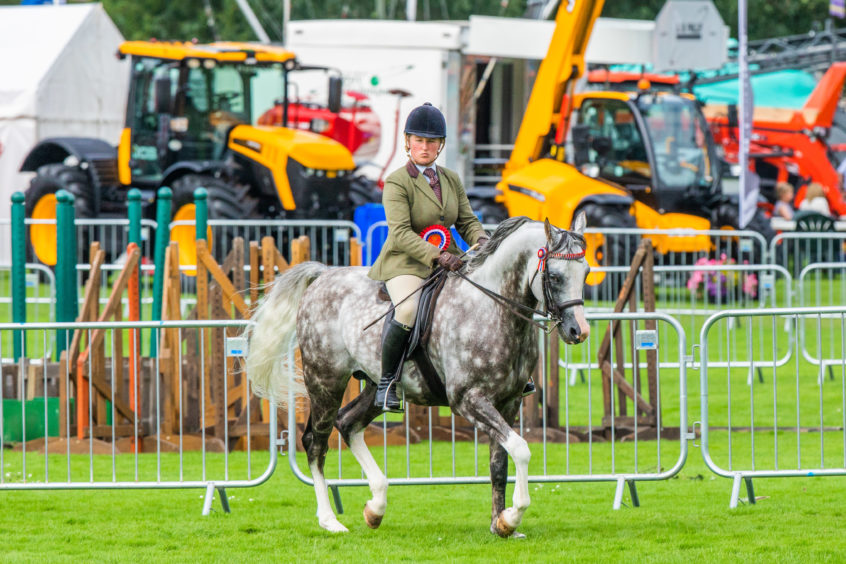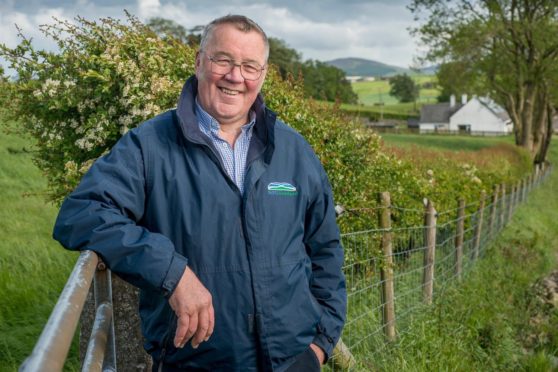From sending shockwaves down the food supply chain, bringing businesses to the brink of collapse and wiping out an entire season of shows, the hurdles for the agricultural industry in 2020 have been great.
Andrew McCornick, NFUS President, says: “The one thing our industry craves – like many others – would be a period of stability and certainty to allow us to adapt to the new normal and to gather a bit of reserve and resilience.
“This pandemic has affected different members in different sectors in different ways,” explains Andrew, who farms in Dumfries. “For those that have lost family members or friends it will have been devastating and you can only feel for them.”
Looking back, labour was a massive priority for farms in the early stages of the pandemic. Initially, the whole food supply chain was thrown into turmoil, sending repercussions all the way back to producers.
“We were having issues with post-Brexit labour availability and commitments with the UK Government and movement of people. Suddenly, we were questioning what labour – especially seasonal – would be able to come and pick this year’s harvest,” says Andrew.
NFUS set up a webpage to bring people either furloughed or looking for work in contact with farms and potential employers to save the harvest. This received a massive response from the public.
The biggest impact fell on the ornamental horticulture sector, which saw crops perishing with no outlet. Andrew fears some of these suppliers may never recover. Meanwhile, fruit and vegetable growers faced tough decisions over whether or not to plant crops in the wake of Covid-19.
Andrew says the loss of the national shows and the local shows was “an absolute tragedy” for all who usually attend and exhibit: “These are not just shop windows for the industry – they are individual therapy sessions for all who attend.

“To my mind, we have seen a rise in stress and mental health issues because these opportunities to escape from the routine and, sometimes, drudgery of farming and crofting have been stolen,” he explains. “There is now also a real shadow of doubt over the future viability of some of these events – some with centuries of history.”
Despite the turmoil, there were also some positives: “We, as an industry, have been getting recognition for making real efforts to try and get food on to people’s tables.
“I think a lot of the local suppliers – people with farm shops – they got more business. To me, the positive of that is the consumers beginning to realise the value of local produce being supplied by local farmers. I just hope that loyalty is retained in the future.”
As we edge closer towards the end of 2020, the challenges do not abate. Andrew says the focus of the NFUS on Brexit has been unwavering despite Covid-19: “The fundamentals have not changed. We need to have free and frictionless trade with Europe, access to labour and an agricultural policy fit for purpose.
“We are closely aligned to [Europe] and their ambitions and, in many ways, we have much more in common than we have differences. Business relationships exist, as do established supply chains.”
He goes on to say that trading with non-EU countries brings with it the challenges of upholding standards of food production: “We cannot allow trade deals with others to undermine the high welfare, environmental and safety standards we must operate to as producers.”
Andrew adds that concerns remain over the availability of overseas labour post-January 1 2021 as transition ends and new UK regimes are implemented: “The UK Government needs to deliver and ensure we have enough labour to meet the demand that will keep the economy running and not limping along.”
“In my lifetime in farming I have seen some major events impacting on the industry. This pandemic and the Brexit Effect need to be in the ‘well I’m glad that’s over’ box to allow us to draw breath then kick on again.”










